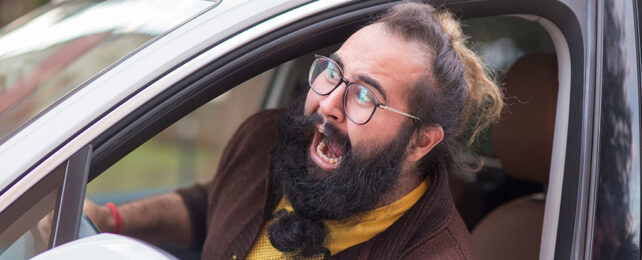Whether you're a medieval soothsayer, a professional astronomer, or just need a good reason to step away from that spreadsheet, nobody can blame you for disappearing for a few hours to marvel at the coincidence of our Moon occluding the Sun so perfectly.
But whoa just a moment there, sunshine. You didn't think you could just go out and look at an eclipse, did you?
Don't give your retinas a sun tan
Ever since you were a tiny human you've been warned not to look at the Sun. And for good reason.
Those photosensitive cells coating the inner back wall of each eye do an amazing job of turning light energy into nervous signals we interpret as vision, all courtesy of a lens and pupil that focus ambient light from the scenery.
Sometimes, when flooded with too much light, those photoreceptors' chemical reactions deplete and you're left with a mess of colors as any functional cells surrounding them shrug and do their best to pick up the slack.
Your eyes can usually cope with this. What they don't cope with is heat. You know, the kind of heat that comes with lasers, and tiny magnifying glasses beaming solar radiation onto what is effectively nerve tissue.
And don't expect those cells to regrow any time soon. Just like your brain cells, once they're gone your body has a hard time replacing them without a whole lot of help.
Here's what to do instead.
Make a solar viewer to watch the Moon's silhouette slowly gobble up the Sun, ensuring you point at the sky every now and then without looking and scream "The great wolf is eating the Sun!" just for effect.
Or, buy a wicked pair of eclipse glasses. Make sure they're really the safe kind though and not phony ones that will murder your peepers. The American Astronomical Society has you covered there.
Don't science and drive
Crunching the statistics on road fatality statistics during the 2017 solar eclipse in the US, physicians Donald Redelmeier from the University of Toronto and John Staples from the University of British Columbia noticed a blip.
It wasn't just a tiny blip either. Around the time of the eclipse, fatal crashes jumped by around 30 percent.
"In absolute terms, this averaged to one extra crash-involved person every 25 minutes and one extra crash fatality every 95 minutes," claim Redelmeier and Staples.
While it's impossible to tell for certain what was behind this rise – if anything – we might assume a whole bunch of anxious soothsayers, keen astronomers, and bored office workers weren't paying attention on the interstate as they vied for the perfect spot to kick back and watch the Sun vanish behind the Moon.
So don't do that. Maybe just don't drive at all.
We might suggest just booking accommodation under the path of the eclipse and getting there nice and early, but you're well out of luck if you haven't done that already.
So if you have to drive, take it easy. Or better still, stay inside where it's safe and watch it as a live stream along with the rest of humanity.

Don't start any scientific myths
There's also no doubting that those moments of darkness provide a perfect opportunity to learn a few things about how the Universe works on a deeper level.
Cloud cover dissipates during a solar eclipse, for example, which should serve as a warning if we ever want to cool the planet through some kind of solar shield.
Einstein's relativity was road-tested for the first time when a solar eclipse darkened the skies enough for background starlight to be measured.
Helium was discovered by the radiance it shed in the form of solar rays seen mid-eclipse in 1868.
Of course, mistakes happen. In another eclipse just the following year, US astronomers Charles Augustus Young and William Harkness swore they also found a new element, going as far as naming it coronium. Unfortunately it turned out to just be really, really hot iron. Whoopsie-doodle!
The German mathematician Johannes Kepler swore in 1605 that the corona of light seen surrounding the Moon during an eclipse was sunlight simply refracting off a lunar atmosphere. Which of course we now know doesn't exist in any truly significant way.
We're not saying don't do science. But do make sure you double-check your sums if you happen to see something truly groundbreaking.
And finally, do share your amazement
Solar eclipses are accidents of nature; a fortuitous combination of being on Earth at a time that a Moon 400 times smaller than the Sun also just happens to be 400 times closer to us than it is from that great ball of fusion in the sky.
That doesn't mean we can't take a moment to appreciate the majesty of the event.
Go outside and safely take a look. Step away from that spreadsheet and take a snapshot or five. Tell your boss you're going out to do a spot of astronomy.
Most importantly, share your amazing experience with us by email, or direct message our Instagram account, and we might even share any pics you take with the world.
And maybe let out a shout or two while you watch. Nobody will blame you for getting a little excited.
